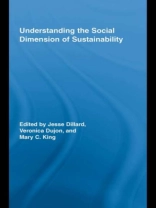The imperative of the twenty-first century is sustainability: to raise the living standards of the world”s poor and to achieve and maintain high levels of social health among the affluent nations while simultaneously reducing and reversing the environmental damage wrought by human activity. Scholars and practitioners are making progress toward environmental and economic sustainability, but we have very little understanding of the social dimension of sustainability.
This volume is an ambitious, multi-disciplinary effort to identify the key elements of social sustainability through an examination of what motivates its pursuit and the conditions that promote or detract from its achievement. Included are theoretical and empirical pieces; examination of international and local efforts; discussions highlighting experiences in both the developing and industrialized nations; and a substantial focus on business practices. Contributors are grounded in sociology, economics, business administration, public administration, public health, geography, education and natural resource management.











